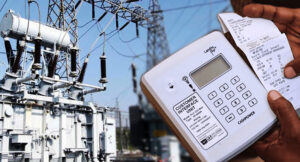Many Nigerians are struggling with rising electricity bills, often wondering why their costs increase month after month. While various factors contribute to electricity pricing, many consumers unknowingly engage in habits that significantly inflate their energy consumption. Identifying and correcting these common mistakes is key to reducing energy usage and lowering your bills. Here’s a detailed look at seven frequent culprits:
-
The Phantom Drain of Plugged-In Appliances: A common misconception is that turning off an appliance completely eliminates its energy draw. In reality, many devices continue to consume small amounts of electricity even when switched off, as long as they remain plugged in. This “phantom load,” also known as “vampire power,” is particularly prevalent with devices like televisions, microwaves, phone chargers, and even some seemingly innocuous items like coffee makers or toasters. These small but constant draws of power add up over time, contributing to higher electricity bills. Unplugging devices when not in use is a simple yet effective way to combat this hidden energy drain.
-
The Inefficiency of Aging Appliances: Older appliances, while potentially still functional, often lack the energy-saving technologies found in newer models. Refrigerators, washing machines, dishwashers, and air conditioners over a decade old are particularly notorious energy consumers. These older appliances often work harder and longer to achieve the same results as their modern counterparts, leading to significantly higher electricity usage. While replacing appliances can be a significant investment, the long-term energy savings can make it a worthwhile consideration.
-
The High Cost of Constant Air Conditioning: In Nigeria’s hot climate, air conditioners are often a necessity, but their use can drastically inflate electricity bills. Running the AC constantly, even when no one is home, is a major source of energy waste. Setting the thermostat to a comfortable but not excessively cold temperature, using fans to circulate air, and ensuring proper insulation can help reduce AC usage and lower costs. Consider using timers or smart thermostats to control AC operation, ensuring it’s only running when needed.
-
The Wasteful Habit of Incandescent Bulbs: Traditional incandescent light bulbs are incredibly inefficient, converting most of the electricity they consume into heat rather than light. Switching to energy-efficient alternatives like LED (Light Emitting Diode) or CFL (Compact Fluorescent Lamp) bulbs can significantly reduce energy consumption for lighting. LED bulbs, in particular, offer the best combination of energy efficiency, long lifespan, and light quality, making them a smart investment for any household.
-
The Inefficiency of Half-Empty Loads: Running washing machines, dishwashers, or dryers with small, half-empty loads is a common but wasteful practice. These appliances use nearly the same amount of energy regardless of the load size. Waiting until you have a full load before running these appliances maximizes their efficiency and minimizes energy waste.
-
The Simple Oversight of Unnecessary Lights: Forgetting to turn off lights when leaving a room seems like a small oversight, but the cumulative effect can be substantial. Making a conscious effort to switch off lights in unoccupied rooms is a simple yet effective way to reduce your electricity bill. Installing motion sensors in less frequently used areas can also automate this process.
-
The Unnecessary Heat of Overly Hot Water: Water heaters are another significant energy consumer in many households. Setting the water heater temperature too high, often to the maximum setting, wastes energy. Most households can comfortably use water heated to a lower temperature, typically around 120 degrees Fahrenheit (49 degrees Celsius). Lowering the water heater temperature can result in noticeable energy savings.
By being mindful of these common energy-wasting habits and making small changes, Nigerians can significantly reduce their electricity consumption and save money on their monthly bills. These changes, while seemingly minor, can have a considerable positive impact on both individual budgets and overall energy conservation efforts.





